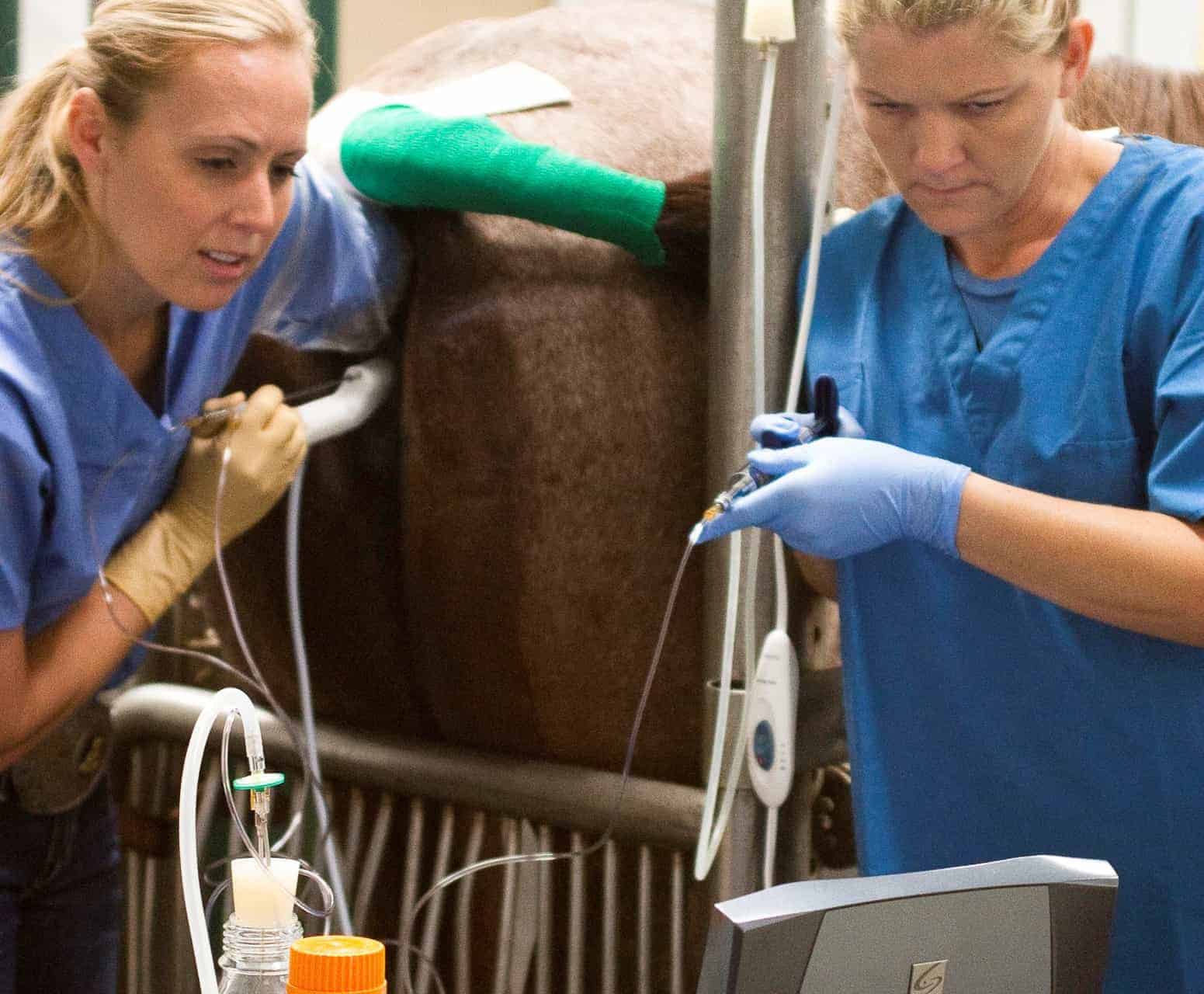Embryo Transfer: From One Mare to Another

The developing technology behind equine embryo transfers means exciting assisted reproduction options are on the horizon
Do you have a mare with a reproductive disorder that prevents her from carrying a pregnancy to term? What about a very old mare that doesn’t need to go through the rigors of carrying and delivering a foal? Maybe you have a superstar mare whose babies are in high demand, and you would like her to produce multiple foals in one year. Or, perhaps you want to breed your talented sport horse or racing mare without taking her out of competition.
For these reasons and others you might want your veterinarian to perform an embryo transfer, which allows another mare to carry and deliver your mare’s foal. Relocating an equine embryo from one mare to another, however, is an involved procedure that only an experienced equine reproductive specialist should perform. Timing a successful embryo flush can be tricky, as veterinarians can only flush fertilized eggs (embryos) from the uterus at specific times. Most commonly the practitioner transfers the embryo immediately into a recipient mare, as freezing these embryos for later use has not been as historically successful in horses as in other species.
Fortunately, recent advances in embryo and egg processing (vitrification, oocyte aspiration, intracytoplasmic sperm injection , and in vitro fertilization ), in conjunction with traditional embryo transfer, give owners more options for reproductive success than ever. Christine Aurich, DVM, PhD, head of the Graf Lehndorff Institute for Equine Science, in Neustadt, Germany, and Maria Raymond Schnobrich, VMD, Dipl. ACT, fertility clinician at Rood & Riddle Equine Hospital, in Lexington, Kentucky, will guide us through the processes, both conventional and cutting-edge TheHorse.com is home to thousands of free articles about horse health care. In order to access some of our exclusive free content, you must be signed into TheHorse.com. Already have an account?Create a free account with TheHorse.com to view this content.
Start your free account today!
and continue reading.

Written by:
Christa Lesté-Lasserre, MA
Related Articles
Stay on top of the most recent Horse Health news with















